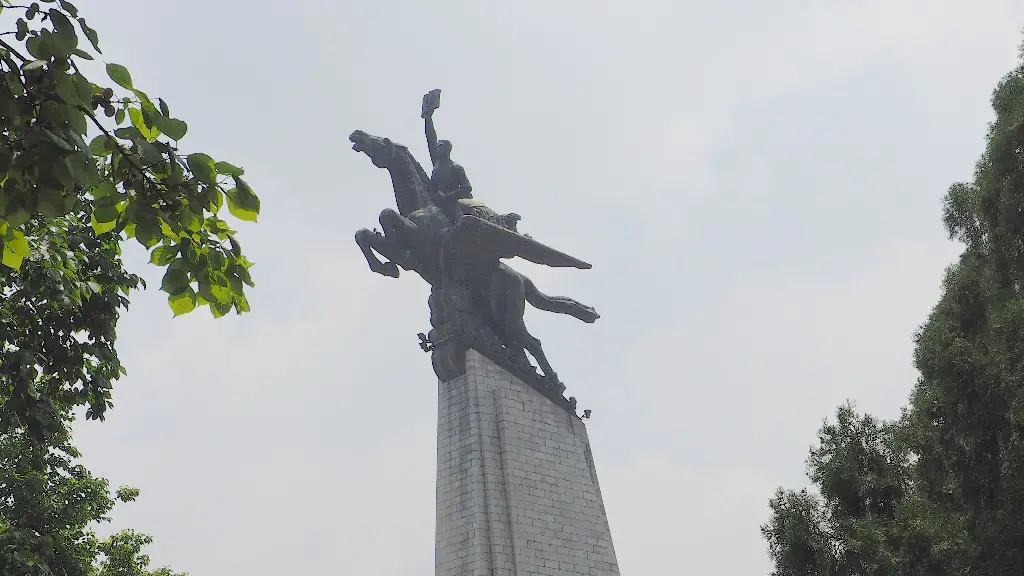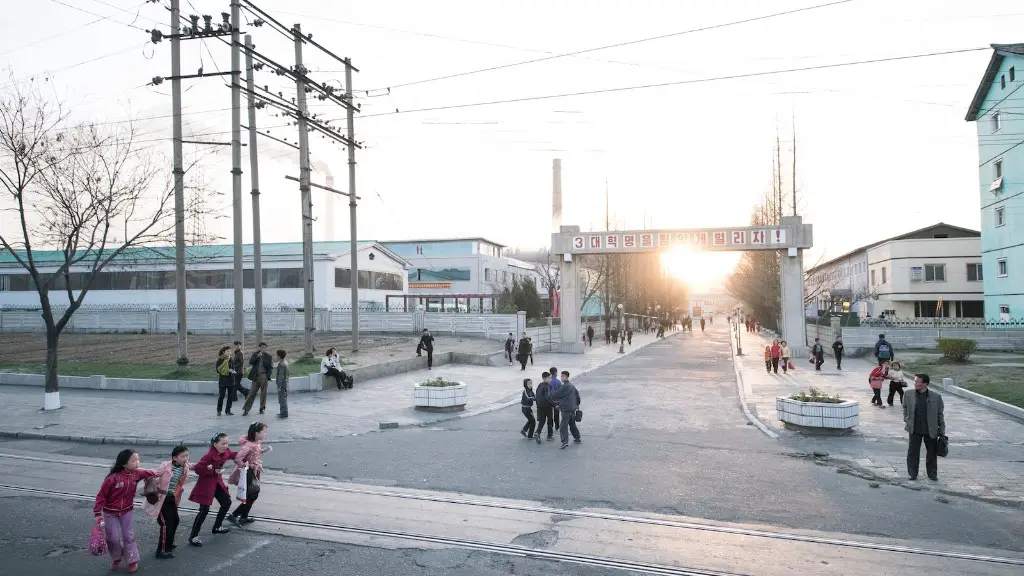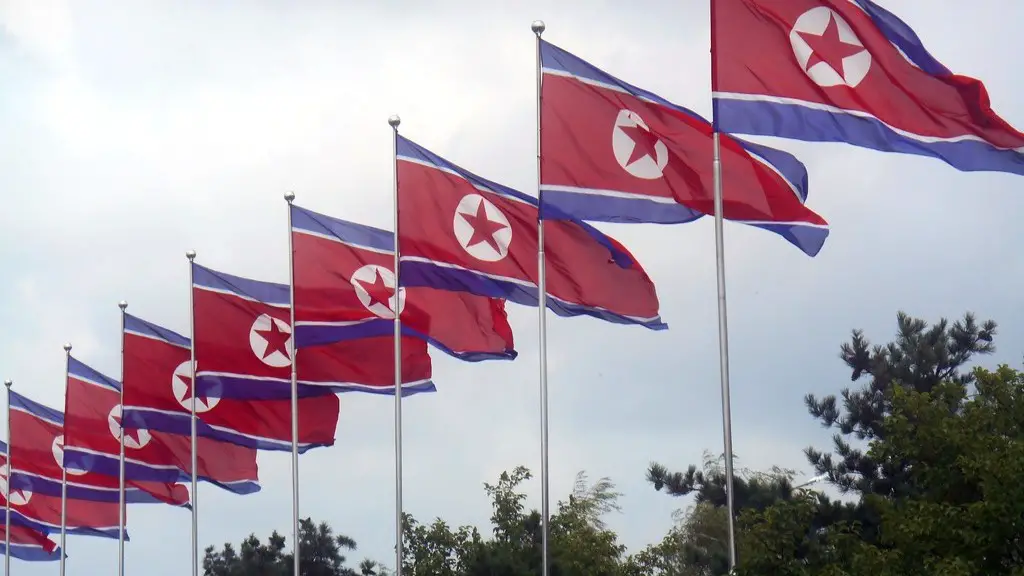Who Is North Korea President Now?
Kim Jong-un is the current Supreme Leader and President of North Korea. He is the son of Kim Jong-il, who held the position from 1994 until his death in 2011, and grandfather Kim Il-sung, who was in power from 1948 until his death in 1994.
The young North Korean leader is best known for his country’s nuclear ambitions, provocative missile tests, and human rights abuses. He has also earned a reputation for ruthless governing tactics. Since taking office, he has purged potential rivals, executed key figures, and antagonized the international community.
Jong-un’s grip on power is very tight, and he is known to crush any dissent. He is adept at creating a cult of personality, and his propaganda campaigns promote an image of him as a strong, generous leader.
North Korea is an isolated and heavily militarized nation. It is estimated to have up to 1.2 million troops, making it the fourth-largest standing military in the world. Jong-un has not hesitated to flex his military muscle, including launching long-range missiles and reportedly making advancements in nuclear technology.
The UN and other international organizations have repeatedly questioned North Korea’s nuclear and ballistic weapons program, and economic sanctions have put the country’s economy under immense strain. Despite this, Jong-un has not revealed any intention to negotiate or compromise.
It is estimated that half of North Korea’s population is malnourished and poverty is rampant. Nonetheless, the country’s economy has been growing steadily in recent years, and the government has reported an increased focus on preventative health and education.
Experts are divided over Kim Jong-un’s leadership. While there is consensus that his actions are troubling and oppressive, some have argued that he is a modernizer and reformer in the face of a stagnating communist system. Others have noted that, despite his saber-rattling and domestic repression, he has avoided major conflict since coming to power.
Impact on South Korea
Relations between North and South Korea remain complex and strained, in part because of North Korea’s nuclear ambitions and missile tests. The South Korean government has sought a peaceful resolution to the conflict, and the two countries have engaged in occasional diplomatic talks.
South Korean President Moon Jae-in has proposed several bilateral initiatives aimed at improving ties between the two sides, such as the resumption of cross-border trade, exchanges of cultural artifacts, and closer communication. However, these initiatives have yet to bear fruit as North Korean leader Kim Jong-un remains suspicious of outside influence.
The South Korean government has also pursued diplomatic talks with the US and other countries to address the North Korean situation. The US and South Korea have themselves engaged in joint military exercises and economic sanctions, but this too has failed to change North Korean behaviour.
Despite these difficulties, South Korea has found a way to cooperate with its estranged neighbour. For example, the two countries operated a joint inter-Korean liaison office in the city of Kaesong. The office, open between 2018 and 2019, allowed members of both delegations to communicate in real-time and coordinate efforts to improve relations.
The two Koreas have also pursued joint economic initiatives, such as the Kaesong Industrial Complex. South Korean companies used the park to develop technology, manufacture electronics and textiles, and produce metals. Unfortunately, this project was eventually suspended due to escalating tensions.
Role of International Organizations
International organizations, such as the United Nations, have been vocal in their condemnation of North Korea’s nuclear and missile tests. The UN Security Council repeatedly imposed tough economic sanctions, including banning the export of coal, iron, and seafood.
The UN has also imposed human rights sanctions, such as asset freezes, travel bans, and restrictions on the use of foreign currencies. These sanctions have had a significant impact on the North Korean economy, but the government continues to pursue its nuclear ambitions.
In response, the US and South Korea have pursued diplomatic options. This culminated in June 2018 with the historic summit in Singapore between US President Donald Trump and North Korean leader Kim Jong-un. While the meeting yielded little tangible progress, it did set the stage for further dialogue about North Korea’s nuclear ambitions.
The international community is still divided on the best approach to North Korea. Some argue for more sanctions and pressure, while others advocate for dialogue and negotiation. In either case, Kim Jong-un continues to remain one the world’s most powerful and unpredictable leaders.
Currently Situation in North Korea
North Korea is currently in a state of uncertainty marked by a nuclear standoff with the US and ongoing tensions with South Korea. Kim Jong-un continues to strengthen his control over the government and the military, while his political and economic policies remain opaque.
The US and South Korea have sought a diplomatic solution to the North Korea conflict, including the resumption of diplomatic talks, increased sanctions, and a possible suspension of nuclear weapons tests. However, North Korea has yet to demonstrate any willingness to negotiate or compromise.
Despite years of sanctions and economic pressure, North Korea’s economy is estimated to be growing. Parts of the country have seen a decrease in poverty and increased access to food and healthcare. However, the country remains largely isolated from the rest of the world and its human rights record continues to be a source of international concern.
Kim Jong-un’s rule has been marked by a culture of fear and repression. He is quick to squash any potential threats, including those from within his own party. He has also repeatedly engaged in saber-rattling, including missile tests and nuclear threats that have unnerved international observers.
Outlook for North Korea
The future of North Korea remains uncertain. The country’s nuclear ambitions, human rights record, and Kim Jong-un’s authoritarian rule have left the international community divided over how to address the situation.
The US and South Korea have sought to bring North Korea to the negotiating table, but these efforts have yet to bear fruit. In the meantime, the country’s economy continues to grow, despite mounting economic pressures.
Moving forward, North Korea’s future depends largely on Kim Jong-un’s willingness to open the country up to engage with the rest of the world. If he is willing to negotiate and compromise, North Korea may be able to make progress towards a brighter future. If not, the nation will remain an isolated and heavily militarized state.
Impact on China and Japan
North Korea’s nuclear ambitions have had a considerable impact on the security landscape in East Asia. China, Japan, and South Korea have all expressed concerns about the situation, with each nation taking steps to ensure their own security.
China and North Korea have a long history of close diplomatic and economic ties. China has sought to bring North Korea to the negotiating table, while also attempting to build an economic bridge between the two countries. China has also sought to impose its own sanctions on North Korea in an effort to curb its nuclear program.
Japan, on the other hand, has been a vocal opponent of North Korea’s nuclear activities. The government has imposed economic sanctions and has greatly increased its military presence in the region. Japan has also sought closer ties with the US and other allies to counter North Korea.
South Korea, meanwhile, is in an awkward position. On the one hand, the nation seeks to build relationships with its northern neighbour, while on the other, it faces criticism for being too soft on Pyongyang. As such, South Korea has sought to balance diplomacy and economic sanctions in order to find a solution to the crisis.
Domestic Political Scene
Internally, Kim Jong-un’s rule is marked by a culture of repression. Political dissidents and independent media outlets





